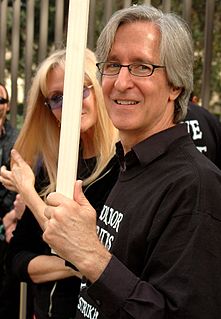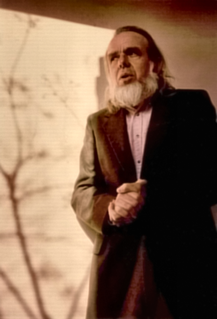A Quote by David Mamet
If you find that a point cannot be made without narration, it is virtually certain that the point is unimportant to the story (which is to say, to the audience).
Related Quotes
Neither the circle without the line, nor the line without the point, can be artificially produced. It is, therefore, by virtue of the point and the Monad that all things commence to emerge in principle. That which is affected at the periphery, however large it may be, cannot in any way lack the support of the central point.
Balance is the key to my serenity. I attain balance by listening to my inner wisdom and to the wisdom of others. There is no situation in which I cannot find a point of balance. There is no circumstance in which I cannot find inner harmony. As I ask to be led into equilibrium and clarity, I will find that my answers come to me. I am wiser than I know, more capable of right action and attitudes than I yet believe. In every event, I seek the balance point of God's action through me.
This progressive effacement of human relationships is not without certain problems for the novel. How, in point of fact, would one handle the narration of those unbridled passions, stretching over many years, and at times making their effect felt on several generations? We’re a long way from Wuthering Heights, to say the least. The novel form is not conceived for depicting indifference or nothingness; a flatter, more terse, and dreary discourse would need to be invented.
It is odd that neither the Church nor modern public opinion condemns petting, provided it stops short at a certain point. At what point sin begins is a matter as to which casuists differ. One eminently orthodox Catholic divine laid it down that a confessor may fondle a nun's breasts, provided he does it without evil intent. But I doubt whether modern authorities would agree with him on this point.
But every point of view is a point of blindness: it incapacitates us for every other point of view. From a certain point of view, the room in which I write has no door. I turn around. Now I see the door, but the room has no window. I look up. From this point of view, the room has no floor. I look down; it has no ceiling. By avoiding particular points of view we are able to have an intuition of the whole. The ideal for a Christian is to become holy, a word which derives from “whole.
I think that there must be a point of self-immersion in a story that is a point of no return. You get far enough in that the story has really touched you to the core and deeply troubled you and made you unhappy and fearful, and then how do you get out of that? I'm a writer, so my way of getting out of that is to write.
Before I was a Discordian, I took life much too seriously. When you take life too seriously you start to wonder what the point of it all is. When you wonder what the point is in life, you fall into a trap of thinking there is one. When you think there is a point, you finally realize there is no point. And what point is there in living like that? Nowadays I skip the search for a point and find, instead, the punch lines.





































